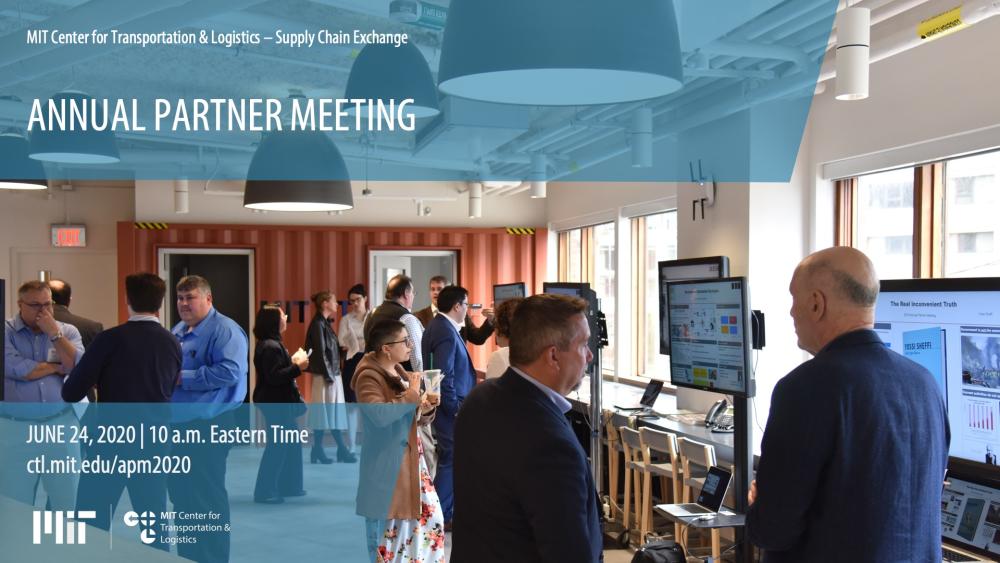Event registration, logistics, and on-site navigation are crucial for the success of any event. Here’s what you need to know.
Organizing an event can be a daunting task, but with the right planning and execution, it can become a huge success. One of the key aspects of event planning is handling the registration process, logistics, and on-site navigation. Whether it’s a small business conference or a large-scale festival, ensuring seamless registration, transportation, accommodation, and movement within the event venue is crucial for the guests’ satisfaction and overall experience.
In this article, we’ll discuss everything you need to know about event registration, logistics, and on-site navigation, including the importance of preparation, the different types of registration methods, managing transportation and accommodation, and navigating the event venue with ease. So, let’s get started!

Credit: ctl.mit.edu
Event Registration – Simplifying The Signup Process For Attendees And Organizers
Understanding The Importance Of Event Registration
Event registration is a crucial aspect of organizing an event. It is the first point of contact with attendees, and as such, it should be simple and convenient for them to register. The following are reasons why event registration is essential:
- It helps organizers plan effectively: With a reliable registration process, organizers can have a precise estimate of how many attendees to expect. This information helps in planning, budgeting, and allocating resources.
- It helps attendees to plan and prepare: A good registration process provides attendees with all the necessary information they need about the event, such as dates, location, and the program. This helps attendees to plan and prepare adequately for the event.
Choosing The Right Event Registration Tool
Choosing the right registration tool can be daunting, given the countless options available in the market. Organizers should consider the following factors when choosing an event registration tool:
- Features and functionality: A good registration tool should offer a range of features such as ticketing options, payment gateways, and attendee management tools.
- User experience: The registration process should be straightforward and easy to use for both the organizers and attendees.
- Cost: The cost should be reasonable and should provide value for money.
- Customer support: The registration tool should have a reliable customer support system to assist with any issues that may arise.
Optimizing The Signup Process For Attendees
To ensure that the signup process runs smoothly for attendees, consider the following optimization tips:
- Keep it simple: The registration form should be short and easy to complete. Only ask attendees for essential information.
- Make it mobile-friendly: Attendees should be able to register using their mobile phones, considering more people use mobile phones instead of desktops to access the internet.
- Provide multiple payment options: Attendees should have multiple payment options to choose from. Offer online payment options such as paypal, stripe, or credit cards.
- Provide confirmation and follow-up emails: Attendees should receive confirmation emails upon successful registration. Also, follow up with attendees a few days before the event to remind them and provide additional information.
Tips For Organizers To Streamline Registration
As an organizer, you want the registration process to be smooth and hassle-free for attendees. Consider the following tips to streamline the registration process:
- Set clear registration deadlines: Attendees should know the registration deadline so that they can avoid the last-minute rush and to facilitate planning on the organizer’s part.
- Use a simple and intuitive registration form: Keep the registration form simple, and only ask for essential information. Use drop-down menus and checkboxes to make it easy for attendees.
- Provide clear instructions: Provide step-by-step instructions on how to complete the registration process. This will help attendees to complete registration quickly.
- Involve your team: Train your event staff on how the registration process works so that they can assist attendees with any issues they may experience.
Logistics Management – Planning, Executing, And Monitoring For A Successful Event
Logistics management – planning, executing, and monitoring for a successful event
Imagine you’ve planned an event where the keynote speakers delivered game-changing speeches. The audience thoroughly enjoyed it, and the panel discussion was a smashing success. But, your event didn’t go off without a hitch. You encountered various logistical issues, resulting in disappointed stakeholders and a reduction in overall event satisfaction.
With that being said, how do you ensure a smooth and seamless event while managing logistics?
The Importance Of Logistics For Event Management
Logistics management is a crucial aspect of event management. A well-planned logistics management strategy helps reduce the stress associated with executing an event, resulting in a better event experience for attendees and event planners. Proper management of logistics ensures staff and customers can move around the premises efficiently, providing a sense of security and comfort all around.
Strategies For Managing Logistics For Large-Scale And Small-Scale Events
Managing logistics for events, whether large-scale or small-scale, can be challenging. Here are some strategies to consider when managing logistics for events:
- Assign the right individuals to manage various logistics needs.
- Ensure that the logistics team is well trained to handle any contingencies.
- Keep track of everything that needs to be done on an ongoing basis.
- Put together a comprehensive checklist to ensure that nothing is missed.
- Keep records of all the logistics management procedures.
Pre-Event Logistics Management – Planning, Budgeting, Venue Selection, And Vendor Management
Pre-event logistics management is essential to ensure event success. Planning, budgeting, venue selection, and vendor management are some of the essential aspects of logistics management that must be handled before the event.
- Planning: Set out goals, make checklists and establish timelines for meeting specific deadlines, among other things.
- Budgeting: Set a budget and keep track of all financial details to stay within budget.
- Venue selection: Choose a venue that fits the event theme, has sufficient space, and meets other requirements such as power supply and internet connectivity.
- Vendor management: Select reliable vendors based on your budget and requirements – audiovisual, cleaning services, furniture rentals, and more.
During Event Logistics Management – Communication, Contingency, And Resource Management
Logistical challenges may arise during an event. In such cases, effective communication, contingency planning, and resource management are critical for timely resolution.
- Communication: Keep all event staff informed about any changes or decisions as well as the status of ongoing issues that may arise.
- Contingency planning: Establish contingency plans to tackle any potential issues before they arise.
- Resource management: Keep track of all available resources, including equipment, staff, and venue facilities, and deploy them efficiently to ensure smooth logistics management.
Post-Event Logistics Management – Assessment, Feedback, And Analysis
Assessing and analyzing the event’s logistics management afterward helps identify areas of improvement for future events.
- Assessment: Assess how logistics management went, and understand the effectiveness of contingency plans.
- Feedback: Gather feedback from event staff and attendees about their logistical concerns, problems or inquiries.
- Analysis: Analyze the feedback received and assess whether you were successful in meeting the logistics objectives for the event.
Effective management of logistics is imperative for the success of an event. Proper planning, executing, and monitoring of logistics management strategy makes for a smooth and seamless event experience for all stakeholders involved.
On-Site Navigation – A Step By Step Guide To Streamline Attendee Experience
Designing Effective On-Site Navigation For Attendees
Designing effective on-site navigation for attendees can make the difference between a frustrating experience and a successful event. Here are some key points to remember:
- Keep it simple: Navigation should be easy to understand, with clear directions and minimal clutter.
- Use clear signage: Signage is critical to help attendees easily understand where to go and how to get there.
- Consider user experience: Attendees should be at the center of your design process. Think about their needs, including accessibility, ease of use, and personalization.
- Pay attention to flow: Ensure that navigation flows smoothly, with logical pathways and clear markers.
Technology Solutions For On-Site Navigation
Advances in technology have made it easier to provide more effective on-site navigation solutions. Here are some tech-based ideas to consider:
- Mobile event apps: Mobile apps can be used to provide real-time directions, push notifications, and personalized recommendations.
- Beacon technology: Beacons can provide location-based information and personalized content based on attendees’ movements.
- Interactive maps: Interactive maps can provide a more engaging experience for attendees.
Implementing On-Site Navigation Success Stories
Many successful events have implemented innovative on-site navigation solutions. Here are some success stories to inspire your event planning:
- Coachella music festival – coachella’s mobile app featured an interactive map, real-time push notifications, and personalized recommendations based on attendee history.
- Ces – at ces, an interactive map was used to help attendees navigate the large conference space and find booths of interest.
- Sxsw – interactive screens helped sxsw attendees find their way around the festival venues and provided real-time schedule updates.
Overcoming Common On-Site Navigation Challenges
Providing effective on-site navigation can sometimes be challenging. Here are some common challenges to be aware of, and ways to overcome them:
- Venue complexity: Complex venues can be overwhelming for attendees. Use clear signage and interactive maps to help attendees find their way.
- Connectivity issues: Poor connectivity can disrupt mobile app use and technology-based solutions. Have backup plans in place, such as printed maps and schedules.
- User adoption: Even the best technology solutions won’t be effective if attendees don’t adopt them. Make sure to provide clear instructions for use and promote the benefits of technology solutions.
Conclusion
After everything that has been discussed in this post, it is clear that event registration, logistics, and on-site navigation are no easy feat. However, with proper planning and implementation, attendees can have smooth sailing from pre-registration to event closures. It all starts with the registration process, which sets the tone for the rest of the event.
Logistics planning is the bread and butter of event management, ensuring that everything runs like clockwork. Finally, on-site navigation ensures that attendees can make their way around the event with ease. The use of technology such as navigation apps cannot be overstated.
Event organizers must consider every detail to make the event a success. It is our hope that after reading this post, event planners have a better understanding of what it takes to put on a successful event. Remember, happy attendees make for a successful event, and that’s what it’s all about.
